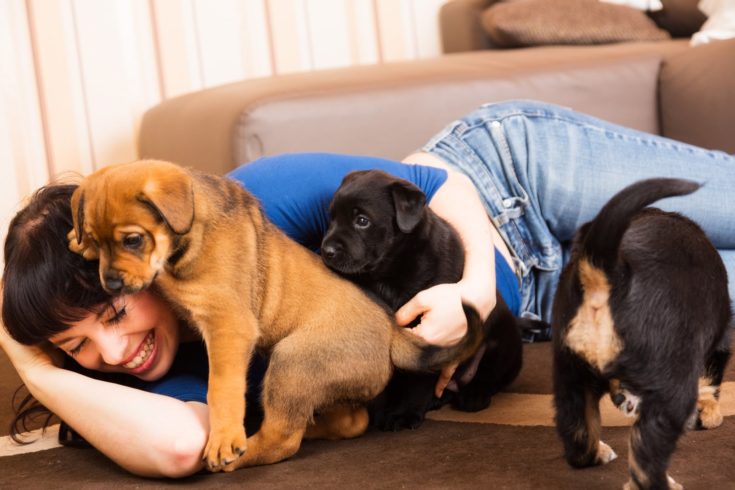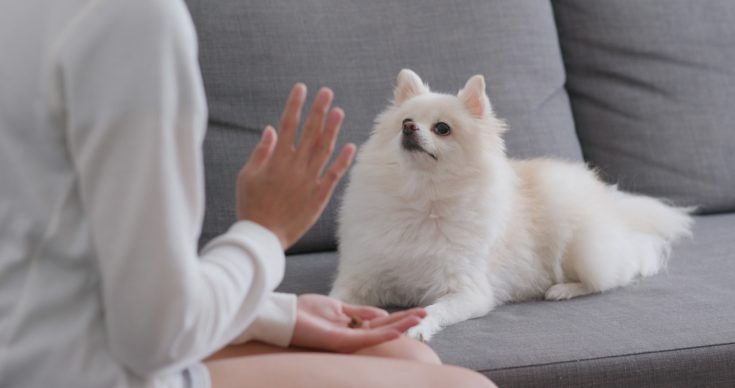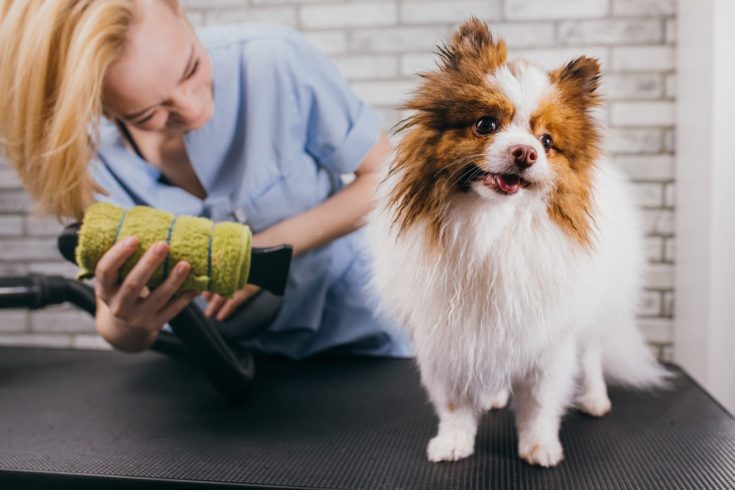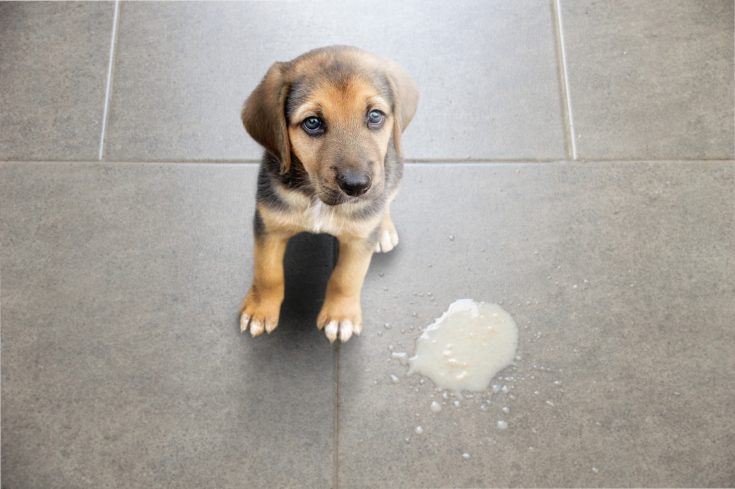If you’re bringing your new furry friend home for the first time you’ll want to be prepared. While the addition of a puppy into the family is an exciting and life-changing moment for many, raising a pup doesn’t come without its challenges and responsibilities.
What you do on the first days with your new furry friend is crucial for their overall growth and success. The habits that you build now will have a massive impact on their health and behavior; from proper training to the correct diet, it is very important to build a strong foundation for them to develop.
While it may all seem daunting, with the right knowledge and a bit of preparation, you’ll be ready to set your puppy up for the best start possible.
Raising A Puppy: Expert Tips From A Vet

When it comes to your puppy, you need an expert on your side. While it is best for you to speak with a vet before you bring your bundle of canine joy home, we understand that not everyone has the benefit of time.
To help you get up to speed quickly, we’ve spoken to a vet and have come up with a list of expert tips that you should keep in mind when raising your pup. Be sure to follow these guidelines during the early stages of their development for a safe, healthy, and happy experience!
Feed Your Pet With Good Quality Puppy Food
There are a lot of changes going on within your new puppy’s body, from the growth of their bones to the development of their vital organs. Proper nutrition is a key element in making sure that these growth processes take place at a healthy rate. The quality of food you feed your pet has a great influence on their overall quality of health.
Selecting the best diet for your little friend can be confusing. There are hundreds of different brands and formulations to choose from. In general, however, you’ll want to be choosing a good quality puppy food that is formulated based on the energy requirements of your dog’s specific age. Here is a list of considerations to take into account as you make your decision:
- Calories: The first and most important consideration is meeting the calorie requirements of your growing pup. Young puppies require twice as many calories as an adult dog as they are expending so much energy on growth and development, on top of their usual activity. They also have higher protein, fat, phosphorus, and calcium requirements.
- Dry vs. wet: Dry food also tends to be better than wet food for puppies. While you can feed both, dry kibble is more densely packed with calories and nutrients, as well as being easier to measure out. Many puppies will also find dry food more palatable and it can even be used as part of training as treats.
- Feeding frequency: Feed your pup little and often, four meals a day is a good amount. Puppies only have a small stomach and so will get full quickly, therefore feeding little and often will allow them to reach their daily calorie requirements. It’s also important to feed them at the same time every day. This gets them into a routine and establishes good habits.
- Breed-specific diets: Some brands of dog food will be specifically marketed at different dog breeds or may specify that they are for ‘large breed’ or ‘toy breed’ puppies. These diets can be useful as often the kibble is the correct size to be easily chewed by that size dog and may contain a different balance of nutrients suitable for your breed. For example, large-breed dogs require less protein, calcium, and phosphorus to prevent them from growing too quickly, which can lead to joint problems when they are older. You can search for breed-specific diets – for instance, read our page about the best puppy food for Labs.
Adult dog food is too rich for a puppy’s body, as it is intended to meet the energy requirements of an adult dog. Puppies need a higher fat and protein content in their diets as they are growing rapidly. In addition, if you are caring for newborn puppies, you will need to provide them with commercial puppy milk formula, preferably at body temperature.
You’ll also want to be feeding your pup three times a day, and making sure that they eat all of their food – don’t let them miss a meal! Establishing good habits in this early stage will set your dog up for success throughout its life.
Interact With Your Puppy Daily

What’s the best part of getting a new puppy? Lots of backyard playtime! These cuddly bundles of energy love to run, jump and play. To ensure that your dog is happy and safe, it’s important to set up positive play habits early on.
You should be playing for at least 20 minutes two times per day. Whether you do so via a rousing game of chase, or you just sit together and go through a training routine, interacting with your new pet is essential. These play sessions provide your pup with an outlet for their excess energy and allow you to bond with your new pet.
Even if you have a busy schedule, playtime is still essential. Make time for this important activity, and you’ll find that both you and your dog are a happy, relaxed pair. Besides, playing fun games with your pet is a great way for you to deal with your own stress. You’ll be able to relax and focus on having fun, rather than worrying about other things in life.
It’s important that you only play positive games with your pet though, as roughhousing can result in both physical injuries for them, as well as anxiety-related issues later down the line. This is especially true for breeds with large amounts of energy, such as Labradors. Chasing balls and other objects are the best way to wear down their excess energy, ensuring that they can relax in their downtime at home.
Enroll In Training Classes
It is never too early to enroll your new pet in puppy classes. In fact, most experts suggest doing so as soon as your new dog has completed its initial vaccinations. A well-trained dog is always a great sight to see. Not only will they be welcome in more places, but it’ll make your life as much easier as they obey your every command.
Enlisting the help of a qualified trainer will allow you to quickly address common puppy issues such as digging, chewing, and barking. A professional will have the friendly yet assertive energy that many pups need to respect. They’ll also be able to teach you different training techniques that you can use at home, such as clicker training or reinforcement training.
Not only will a well-trained pup be welcome anywhere, but it also means that you can relax and have fun with your pup. You’ll be able to teach them new skills, play games together and maybe even take part in agility competitions together!
Housebreak Your Dog

House training is perhaps the most important habit to build. It saves you time cleaning up and protects your new carpet from stains! It is also an essential skill that will help your pet become a welcomed guest in more places.
Housebreaking is a fairly simple process, especially if you remember these three rules: feed them at the same time every day, take them to the toilet as soon as they wake up and just before bedtime, and keep them away from any mistakes for as long as possible.
Julie Burges, a Certified Dog Trainer for SeniorTailWaggers.com, wrote “Most puppies will need to do their business as soon as they wake up so get up early with them, look out for signs that your puppy needs to go to the toilet, and immediately take them outside. Repeating this a few times will allow them to make a connection between being outside and going to the toilet. Be sure to reward your puppy with a treat to further reinforce the training and don’t be afraid to give your puppy a gentle telling off if they mess in the house.”
Besides teaching your dog to use the toilet at designated times, you should also introduce crate or confinement training. This technique has been shown to save countless carpets from the wrath of a pup’s tiny bladder. Dogs that view their crates as a safe, personal space instinctively learn not to soil their space, which is an invaluable habit that will go a long way in housetraining your dog.
Provide A Comfortable And Safe Environment
One of the most important aspects of puppy care is allowing your pet to feel comfortable and safe in their home environment. While getting a pup is a big change for you, it’s an even bigger change for your new friend. A new environment with different people and smells can be very overwhelming, so it’s crucial to provide your pup with plenty of their own areas where they feel at ease.
A comfortable dog bed gives them their own space to sleep and further reinforces a good routine of ‘going to bed’. In addition, a section of the home may be designated as a ‘puppy safe’ area, where curious puppies can be left to explore and play without being hurt by dangerous household items such as electrical cords. Other items to watch out for include house plants, bleach, and human medication.
Many puppies also benefit from having their own crate, which is a great tool for housetraining and preventing destructive chewing. It gives your pup a safe, enclosed space where they can feel at ease. While some puppies are initially wary of their crate, they quickly come to appreciate it as their very own den. Like us, dogs need a nice place to retire to when they want to relax!
Pay Regular Visits To The Vet

Whenever you get a new puppy, it’s a good idea to take them to your local vet for a health check. They will perform a thorough health examination to check for any congenital defects and can answer any questions you may have about raising your dog properly.
Once your pup is 6-8 weeks of age It’s very important to get their primary vaccine course started, not only to prevent disease but also to allow them to mix with other dogs and socialize as soon as possible. Socializing with other dogs is crucial to their development and how they will interact with other dogs when they are adults; it can mean the difference between a polite well-behaved dog and an aggressive terror! You can view this helpful dog vaccination schedule from WebMD.
Another crucial part of visiting the vet is starting your dog’s anti-flea and deworming treatments. The biggest health concern for puppies is the development of worms as they grow. Even healthy pets can have worms, however, puppies are more susceptible as their immune system development is still in its early stages and they can become easily infected.
It’s also highly recommended to have your puppy microchipped. If your dog ever goes missing and turns up elsewhere, their microchip can be scanned to allow the finder to track you down as the owner. It’s a small sharp scratch to place the microchip under your puppies’ skin but saves a lot of heartaches should they ever wander off.
Groom Your Pup Regularly

Grooming is one of the most important aspects of owning a dog. It isn’t something that can be ignored, as it will have a meaningful impact on your pet’s health. Besides, bonding with your pup while grooming them for a couple of hours will help them develop positive experiences with body handling. This is important to make sure they are comfortable with being handled by vets and groomers.
Regular grooming plays a vital role in the comfort and health of your dog. Here’s what a typical grooming routine might look like:
- Nail Trimming – Many dogs hate nail trims, but overgrown nails can affect your dog’s ability to walk. If you start this routine early, it will be easier to get your dog used to the process and eventually do it without too much fuss. Invest in good-quality nail clippers, to avoid jagged edges.
- Brushing – Use a soft bristle brush or a rubber massage mitt on their coat. This helps spread natural oils throughout their fur and skin and also helps to remove loose hair whilst bonding with your dog. A simple comb will suffice for short hair breeds, while a slicker brush is perfect for medium to long coats.
- Bathing – Bathing your dog regularly will keep their coats in good condition and avoid a build-up of oil, dirt, and dead skin. Use a puppy-safe shampoo formulated for young dogs. Brushing beforehand will help remove any tangles from the fur that might snag during washing.
- Teeth Cleaning – Puppies are born without enamel on their teeth. This means that they are more susceptible to decay as they get older, so it’s important to start a routine for cleaning them when they’re young. Use an enzymatic toothpaste and finger brush or gauze wrapped around your finger each night before bed.
Many dog owners enjoy grooming their own dogs as a bonding activity. If you want to do it yourself, ask your vet for recommendations on grooming supplies and how to make it a positive experience for your dog. And if you opt to go to a professional groomer, make sure they know what they’re doing! The comfort and safety of your dog should always come first.
FAQs
What Are The Most Common Health Problems Affecting Puppies?

The most common health problems affecting puppies are vomiting and diarrhea. If your pup is frequently vomiting, has loose stools, or is otherwise unwell in themselves then take them to your vet immediately. To learn more, you can read this article about dogs’ vomiting issues.
It is also important to be aware of certain hereditary health conditions. Hip and elbow dysplasia are two conditions with strong genetic links and can lead to an abnormal gait (the way an animal walks) or even lameness in puppies as they grow. X-rays will need to be performed to investigate these conditions.
Unfortunately, not all puppies are equal, and some may have more health problems than others. Keep an eye out for any signs of them not being quite right and see your vet if you have any doubt.
How Long Can A Puppy Be Left Alone During The Day?
Most experts recommend keeping a puppy less than 5 months of age indoors alone for a maximum of four hours each day. However, this will depend on the age and how well your pup is doing at holding its bladder and bowel movements.
Even if your pup is capable of holding its bladder, you shouldn’t leave them alone for too long. Young dogs require sufficient attention and socialization, which is crucial for their development.
What Should I Do If My Puppy Refuses To Pee?

If your puppy is unable to pee, then anxiousness or excitement could be the cause. Try taking them out again in around 15 minutes to see if this has solved the issue. If you’re still having problems after this time, take a small treat with you to try and entice them. Dried liver, cheese cubes, or a small piece of cooked meat are all good choices.
If your dog still can’t pee even after this second attempt then take them to the vet immediately as they could be suffering from a urinary tract infection, bladder stones, or other related conditions.
Where Should My Puppy Sleep At Night?
Ideally, puppies should sleep in a crate during the first 6 months of life. This will make training easier, reduce the risk of them getting themselves into trouble, and ensure they feel safe.
Some dog owners may wonder if their puppies should sleep in the same bed as their humans, but the answer to this is no. Puppies are more easily able to be startled while sleeping and will need you to let them out during the night, so it’s best to keep them in their own bed for easier access.
Conclusion
You may be feeling a bit overwhelmed having just brought your puppy back for the first time, and that’s okay. Take each day at a time and gradually implement the advice above, and you will be well on your way to raising a happy and healthy puppy.
